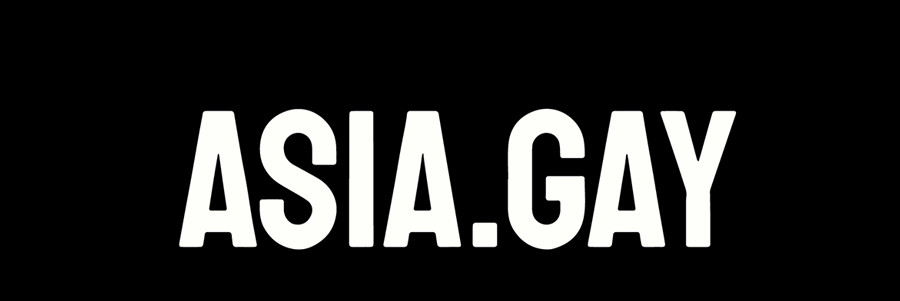
Transform Your Life with Cognitive Behavioral Therapy (CBT): A Path to Healthier Thinking and Emotional Well-being
Unlock Your Potential with Cognitive Behavioral Therapy (CBT)
Are you feeling overwhelmed, stuck, or struggling with negative thoughts that hold you back? Imagine having a powerful tool to help you break free from these patterns and reclaim your life. That's where Cognitive Behavioral Therapy (CBT) comes in. CBT is a proven, practical, and highly effective form of therapy designed to help you identify and change negative thinking patterns, transform your emotions, and improve your overall well-being.
What is Cognitive Behavioral Therapy (CBT)?
Cognitive Behavioral Therapy is a short-term, goal-oriented therapy that focuses on the connection between your thoughts, emotions, and behaviors. It’s based on the idea that your thoughts influence your feelings, and your feelings influence your actions. When negative thought patterns take control, they can lead to stress, anxiety, depression, and even physical health problems.
Through CBT, you'll work with a trained therapist to identify harmful thought patterns and replace them with healthier, more balanced ways of thinking. This process helps you manage and reduce symptoms of mental health issues like anxiety, depression, PTSD, and OCD.
How Does CBT Work?
CBT operates on a fundamental premise: Your thoughts shape your reality. It teaches you how to identify, challenge, and reframe those negative thoughts that often cause emotional distress. Here's how it typically works:
- Identify Negative Thought Patterns: Often, you don’t realize how negative thinking habits have taken over. CBT helps you bring these thoughts into focus, allowing you to recognize distorted thinking like catastrophizing, overgeneralizing, or filtering out the positives.
- Challenge Negative Thoughts: Once you’re aware of these thoughts, CBT helps you evaluate them more objectively. Are they really true? What evidence do you have for and against them? This step promotes critical thinking and helps you see situations more realistically.
- Replace with Balanced Thoughts: After challenging the negative thought, you learn how to replace it with a more balanced, rational one. For example, instead of thinking “I’ll never succeed,” you might reframe it as “I’ve faced challenges before and learned from them.”
- Behavioral Changes: CBT isn’t just about thoughts – it also includes making practical changes to your behavior. You might be encouraged to try new activities, challenge avoidance behaviors, or practice relaxation techniques to reduce stress. These changes help reinforce the new, healthier thinking patterns.
Overcome Anxiety with Effective Therapies
Anxiety affects millions globally, but there’s good news: various therapies can help manage and reduce anxiety. Cognitive Behavioral Therapy (CBT) is one of the most effective, but other approaches can also provide relief. Here’s an overview of some therapies designed to help you regain control over your life.
1. Exposure Therapy: Facing Your Fears
A core part of CBT, Exposure Therapy helps you confront anxiety-provoking situations gradually, desensitizing you to them, and building confidence.
2. Dialectical Behavioral Therapy (DBT) for Anxiety
DBT combines CBT with mindfulness, emotional regulation, and distress tolerance, helping those with anxiety manage overwhelming emotions and develop healthy coping strategies.
3. Acceptance and Commitment Therapy (ACT) for Anxiety
ACT encourages accepting anxiety and taking actions aligned with your values, even in its presence. It teaches cognitive defusion and emotional acceptance, empowering you to live a meaningful life despite anxiety.
4. Art Therapy for Anxiety
Art therapy offers a creative approach to expressing emotions, reducing stress, and staying grounded. It helps individuals visualize feelings and find relief through artistic expression.
5. Psychoanalytic Therapy for Anxiety
Psychoanalytic Therapy explores unconscious mind patterns and past experiences that contribute to anxiety, offering deep insights into the root causes of emotional distress.
6. Interpersonal Therapy (IPT) for Anxiety
IPT focuses on improving communication skills, resolving relationship conflicts, and building social support, addressing anxiety tied to interpersonal issues.
Which Therapy is Right for You?
The best therapy depends on your needs. CBT and Exposure Therapy are practical, while DBT, ACT, and IPT offer deeper emotional support. Start your journey toward relief by consulting a qualified therapist to explore your options. With the right therapy, you can regain control and start living your best life.
Benefits of Cognitive Behavioral Therapy
1. Proven Effectiveness
CBT is backed by extensive research, making it one of the most effective treatments for anxiety, depression, stress, and other mental health concerns. It’s a flexible treatment option that works for many people, regardless of age or background.
2. Fast-Acting
Unlike some therapies that can take months or years to show results, CBT is typically a shorter-term treatment. Many individuals begin to feel better within just a few weeks.
3. Develop Lifelong Skills
CBT teaches you essential life skills that can help you cope with stress, make better decisions, and improve your overall mental health. It empowers you to become your own mental health advocate, applying techniques you’ve learned to future challenges.
4. Reduce Reliance on Medication
While medication can help in certain situations, CBT offers a non-medication approach. It’s often used in combination with medications for enhanced results, but many people find CBT to be sufficient on its own.
5. Treat a Wide Range of Issues
CBT has been proven to treat a variety of mental health conditions including:
- Anxiety disorders (Generalized Anxiety Disorder, Social Anxiety, Panic Disorder)
- Depression
- Post-Traumatic Stress Disorder (PTSD)
- Obsessive-Compulsive Disorder (OCD)
- Eating disorders
- Sleep problems
- Chronic pain management
CBT in Action: A Real-Life Example
Meet Sarah, a young professional struggling with anxiety. She often finds herself spiraling into negative thoughts like, “I’ll mess up at work,” or “I’m not good enough.” These thoughts lead to stress, self-doubt, and even physical symptoms like headaches and insomnia.
In CBT, Sarah works with her therapist to identify these automatic negative thoughts. Together, they challenge those thoughts by asking, “What’s the evidence for and against these beliefs?” They find that Sarah's fears are mostly based on past mistakes and are not reflective of her abilities or reality.
Through this process, Sarah learns to replace these thoughts with more realistic, empowering ones. Over time, she becomes more confident in her job and her ability to handle challenges, reducing her anxiety and improving her quality of life.
Is CBT Right for You?
CBT isn’t just for people with severe mental health disorders – it’s for anyone who wants to improve their mental well-being. Whether you’re feeling stuck in negative patterns or just want to learn new coping skills, CBT can be a game-changer.
Common Reasons to Try CBT:
- You’re struggling with overwhelming feelings of stress, anxiety, or depression.
- You’re experiencing difficulty managing your emotions.
- You want to break free from self-sabotaging behaviors.
- You’re seeking a structured, practical approach to therapy.
Taking the First Step
If you think Cognitive Behavioral Therapy might be right for you, the first step is finding a trained therapist who specializes in CBT. Many therapists offer both in-person and online sessions, making it easier than ever to get started on your journey toward healing.
Don’t let negative thoughts and feelings control your life. With CBT, you can break free from mental blocks, change the way you think and feel, and unlock your full potential.
Start your journey toward a healthier,
more balanced life today with Cognitive Behavioral Therapy.
CBT is an effective tool that puts you back in the driver’s seat of your life.
Schedule an online consultation or contact us at info.bkk@pulse-clinic.com
or chat with us on your preferred platform.
![]() +66-84-226-2569
+66-84-226-2569  @pulserx
@pulserx ![]() PulseClinic
PulseClinic
Ready to make a change? Let CBT guide you toward a brighter tomorrow!
 Parnrawee Wadbua
Parnrawee Wadbua


